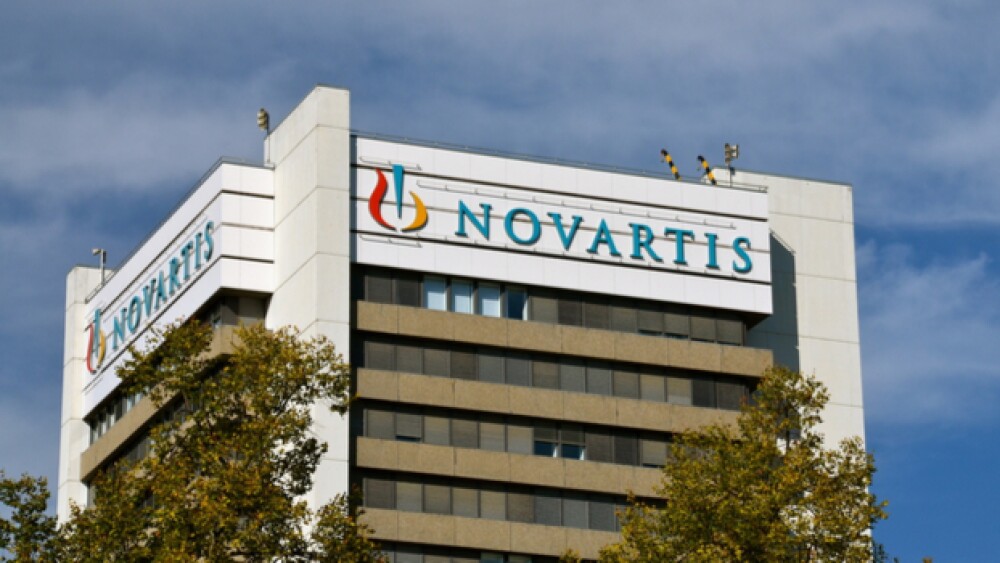Novartis saw a strong boost in sales during the second quarter, driven by Cosentyx and Entresto, as well as a 9% growth in oncology sales, the company announced this morning.
lucarista / Shutterstock.com
Novartis saw a strong boost in sales during the second quarter, driven by Cosentyx and Entresto, as well as a 9% growth in oncology sales, the company announced this morning.
In its quarterly announcement, Novartis said global sales were up 8% to $11.8 billion, including a 4% boost in the United States. Cosentyx brought in $858 million, a 25% boost over the second quarter in the previous year. Cosenxtyx’ revenue surge was mainly driven by strong U.S. growth, which saw a 31% boost, the company said. Entresto generated $421 million, an 81% growth over the same quarter last year. That growth was due to increased initiation in hospital and ambulatory settings, the company said.
Also supporting Novartis’ second-quarter surge are key oncology assets, including Lutathera, which was approved last year for the treatment of somatostatin receptor-positive gastroenteropancreatic neuroendocrine tumors. Lutathera generated $109 million in the quarter, $85 million of which came from the United States. Revenue growth from Lutathera is expected to continue with the continued launch of the drug across Europe, Novartis said. Kisqali generated $111 million driven by use in first-line metastatic breast cancer patients, independent of menopausal status or combination partner, the company said. Kisqali also saw boosts in Europe and other regions, Novartis added. Kymriah, the company’s CAR-T treatment, generated $58 million, primarily in the U.S. and Europe.
Novartis Chief Executive Officer Vas Narasimhan said the company delivered an “exceptional first half performance in 2019” and as a result, the company has increased its full-year guidance for both sales and core operating income. Sales are expected to grow mid to high-single-digit and core operating income is expected to grow low double-digit to mid-teens, the company revealed.
“We continue to progress our breakthrough medicines pipeline, with the launches of Zolgensma and Piqray, and are on track for the upcoming pivotal trial results of Entresto in preserved ejection fraction heart failure, ofatumumab in multiple sclerosis, and fevipiprant in asthma,” Narasimhan said in a statement.
The company also pointed to recent regulatory approvals of its spinal muscular atrophy gene therapy Zolgensma and Piqray as positive steps made during the quarter. Zolgensma was approved for children younger than two years old who have been diagnosed with SMA with bi-allelic mutations in the survival motor neuron 1 (SMN1) gene. The treatment has a list price of $2.5 million. Piqray was approved as the first and only treatment specifically for patients with a PIK3CA mutation in HR+/HER2- advanced breast cancer.
While Novartis posted a positive second quarter, the company also set aside $700 million to settle kickback allegations in the U.S. The company has been conducting ongoing negotiations in private to settle the charges. During a conference call with reporters today, Narasimhan confirmed the funds being set aside, Reuters said. In 2013, Novartis was the subject of a healthcare fraud lawsuit that alleged the company held approximately 80,000 “sham” events where doctors were “wined and dined” by Novartis in order to boost prescriptions of the company’s cardiovascular drugs. The government alleged that as a result of Novartis’s “kickback scheme, Medicare and Medicaid have issued tens of millions of dollars in reimbursements based on false, kickback-tainted claims.” In November 2015, Novartis agreed to pay $390 million to settle a civil lawsuit related to the kickback payments to specialty pharmacy companies that distributed the drugs Exjade and Myfortic. Although Novartis paid the amount, they neither admitted nor denied liability.





